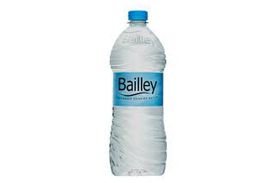
Water that has been cleaned, processed, and packaged for retail sale in bottles, cans, or other packaging is referred to as packaged drinking water. It is an essential supply of pure, safe drinking water for consumers, promoting convenience, public health, hydration, and emergency readiness. When access to safe drinking water is restricted or there are worries about the quality of the local water supply, the need of packaged drinking water becomes even more apparent. It is significant for a number of industries, such as tourism and disaster aid. In a lot of situations and communities, it is a vital resource.
As the world grows more networked and people look for easier, more accessible ways to stay properly hydrated, there is a rising demand for packaged drinking water. The rising demand can also be ascribed to its cost-effectiveness and hygienic qualities. Spring, ordinary, or mountain water can all be found in packaged drinking water. Strict safety and quality criteria are met during the production of this water, which is meant for human consumption.
Under IS standard IS 14543: 2016, all packaged drinking water (except from packaged natural mineral water) is now required to be certified by the ISI.
Packaged drinking water needs to meet the standards specified in the document. It must be handled, packaged, collected, processed, and marketed in compliance with the standard's hygienic requirements.
Without the ISI Mark, this product cannot be marketed, imported, or exported into the Indian consumer market.
Indian Standards Institute, or ISI was renamed the Bureau of Indian Standards (BIS) in 1987. The official mark that the Bureau of Indian Standards provides for manufacturers of various goods is the ISI Mark. It is used to indicate compliance with Indian standards (IS) set by the Bureau of Indian Standards (BIS) and has been used as a conformity marking for industrial products. Manufacturers received permission from BIS to use the ISI Mark on items that comply with relevant Indian requirements through the product certification program.
Only manufacturers (domestic or foreign) who produce the finished product will be awarded ISI Certification. This will not be given to any product importers, traders, dealers, or distributors.
The following documentation is required to get an ISI certification:
For more detailed information, please click here.
There are two approaches for Indian manufacturers to become certified with the ISI Mark:
Regular Procedure
With the possible exception of cases deemed "All India first," which might take up to 180 days, the licensing procedure is expected to be finished in 120 days. This timeline starts on the day the application is received, assuming that at different points in time the documentation, unit assessment, and product conformance are all deemed acceptable.
Step 1: Manufacturing Unit Customization in Compliance with Applicable Indian Standards
Step 2: Submission of the Application Form
For more detailed information, please click here.
Simplified Procedure
This is a much faster process than the standard procedure. After a factory inspection is deemed satisfactory and the initial evaluation establishes that the sample complies with the applicable Indian Standard(s), the license application process is expected to be finished in 30 days.
Step 1: Adapting the Manufacturing Unit to Comply with the Relevant Indian Standard
Step 2: Sample Testing
For more detailed information, please click here
The process of obtaining ISI Mark Certification for Foreign Manufacturers typically includes the following steps:
Step 1: Application
Step 2: Query Raised (If Any)
For more detailed information, please click here.
Brand Liaison provides helpful support for achieving ISI Mark Certification. Among our offerings are:
Please click here to get in contact with our team of specialists for a deeper explanation of the paperwork and steps needed to get ISI Mark Certification.